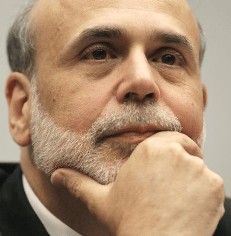(AXcess News) New York – One might ask the Federal Reserve, where’s the beef, though Wall Street was not too surprised to have the Treasury fess up to a stalling U.S. economy when it said in a statement released Wednesday that the pullback in economic growth was temporary.
The economy, as measured by gross domestic product, contracted in the fourth quarter though the 0.1 percent decline was not enough to throw the U.S. economy into a tailspin. While the Fed said it would continue to buy securities in an effort to support the economy.
The reduction in gross domestic product came from a drop in government spending and shrinking business inventories.

Most economic pundits are now watching unemployment more closely and the optimists amongst them are hoping for an unemployment rate below 7 percent. Should that happen, the pack of bean counters and spreadsheet enthusiasts will be looking for inflation to set in.
While inflation may not help stocks, it would certainly benefit the bond market as treasury rates have remained unattractive and bank rates even less so.
So where do retail investors go? Many are on the sidelines and with all that cash piled up, the more positive economists are waiting for Mr. and Mrs. USA to once more come back to the stock market with their cash.
While time is no enemy to returns, what most Americans have been doing is reducing debt and most of that in credit card balances. Home values remain negative so no equity is available to the majority of the retail investors in the U.S., making it a wait-and-see market.
Yet Wall Street does not live or die by the amount of cash retail investors put into the marketplace. Indeed, overall trading volume, year-over-year, remains low, yet the Dow is tickling a new high of 14000 and most, including this reporter, believe we’ll see it shortly.
If the retail investor benefits from anything it will be Congress tackling the debt while inflation could increase yields on CDs, savings accounts and treasuries. Still, the recent tax hike won’t add to investor enthusiasm anytime soon and in fact could work against the market and the U.S. economy and curb consumer spending even more.
The real game is going to be one of patience on the part of investors and the smarter ones will return to the stock market and look for bargains.



